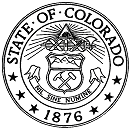![]() The information on this page is archived and provided for reference purposes only. It may be outdated or no longer maintained.
The information on this page is archived and provided for reference purposes only. It may be outdated or no longer maintained.
Colorado economy mixed in Q2, but still outperforming the nation
Denver, August 11, 2022 - Employment in Colorado remains above pre-recession levels, but some industries in the state are still lagging, according to a report released today by the University of Colorado Boulder and Colorado Secretary of State Jena Griswold.
The Quarterly Business and Economic Indicators report is prepared by the Leeds Business Research Division (BRD) at CU Boulder in conjunction with the Colorado Secretary of State’s Office. The latest report for the second quarter 2022 shows that Colorado recorded 39,464 new entity filings, increasing year-over-year by 0.5% but decreasing seasonally 9.7% from Q1.
Existing entity renewals and entities in good standing grew strongly year-over-year—both positive signals about business health. However, delinquencies and dissolutions also recorded strong growth year-over-year—signals of business strain.
“While Coloradans’ resilience has been tested, today’s report shows we’re moving in the right direction. Colorado’s economy continues to shine even with uncertainty in the national economy. Our business sector has shown ongoing resilience,” said Secretary Griswold. “As Secretary of State I will continue to work to ensure Colorado remains one of the most business-friendly states in the nation.”
The mixed data is also reflective in employment: Colorado has recorded the 10th-best employment recovery in the nation, adding 412,300 jobs from May 2020 through June 2022 after losing 375,200 in the early months of the COVID-19 pandemic. However, four industries––government, mining, education and health services, and leisure and hospitality––remain below pre-pandemic employment levels.
Colorado is projected to add 104,000 jobs in 2022. The state’s labor force is at a record level, growing 2.6% year-over-year in June. The labor force participation rate ranked 2nd-highest in June, totaling 69.5%.
Unemployment in the state dropped to 3.4% in June, just under the national unemployment rate of 3.5%.
“Our most recent analysis shows Colorado ranks above average in employment, labor force, income and GDP compared to the rest of the nation,” said Rich Wobbekind, senior economist and BRD faculty director. “Still, the most recent Leeds Business Confidence Index signals business leaders are cautious heading into Q3 and Q4 due to inflation, interest rates, worker shortages and other factors.”
In Colorado, home price growth remained elevated in Q1, increasing 21.6% year-over-year. Retail gasoline prices spiked to $5.00 per gallon in late June, but decreased 11% in the five weeks since.
National real gross domestic product (GDP) contracted for a second straight quarter in Q2, shrinking at an annualized rate of 0.9%. While Colorado recorded a year-over-year decrease of 1.9% in Q1, real GDP increased at an annualized rate of 3.9% in Q2.
You can find monthly information on key economic statistics and trends that impact the state on the Colorado Business and Economic Indicator Dashboard, launched by the Colorado Secretary of State's office in conjunction with BRD.




 Menu
Menu  Search
Search 